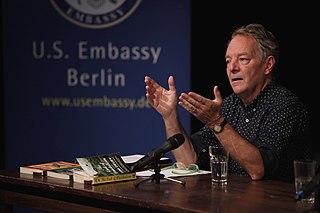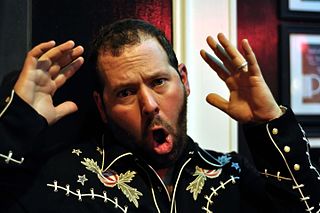A Quote by Jude Law
I hadn't read or heard a lot about [Tom] Wolfe until I read this script, and in that way I think it was really clever to write a piece about him instead of Max Perkins,[Ernest] Hemingway, [John] Fitzgerald, or others that people have strong opinions of already.
Related Quotes
Do you think that Hemingway knew he was a writer at twenty years old? No, he did not. Or Fitzgerald, or Wolfe. This is a difficult concept to grasp. Hemingway didn't know he was Ernest Hemingway when he was a young man. Faulkner didn't know he was William Faulkner. But they had to take the first step. They had to call themselves writers. That is the first revolutionary act a writer has to make. It takes courage. But it's necessary
The great thing about Twitter is, you get a lot back, and I read through a lot, and I want my fans to know that I do read a lot, and it's why I do respond or retweet clever posts, and I'm constantly amazed by the cleverness of people on Twitter. I just think it's a really great tool to communicate with fans and influence conversations and raise awareness about things I'm interested in, that I think deserve some attention.
I would give them (aspiring writers) the oldest advice in the craft: Read and write. Read a lot. Read new authors and established ones, read people whose work is in the same vein as yours and those whose genre is totally different. You've heard of chain-smokers. Writers, especially beginners, need to be chain-readers. And lastly, write every day. Write about things that get under your skin and keep you up at night.
I read some older books when I worked at Barnes And Noble, like some of the American classics. I read a lot of Hemingway. I fell in love with Hemingway's prose and with the way he wrote. I feel like he's talking to me, like we're in a bar and he's not trying to jazz it up and sound smart, he's just being him.
When I think about him, I think about him as John and John Wick. I think of John Wick being the assassin part of John. I would say that guy has strong will; never gives up; he's kind; and there's honor about him. He's also a man of strength. There are even some vulnerabilities to him. Most importantly, he's good at his job.
I had to audition for Fandango. When I read the script, the role that was interesting - so everyone thought - was the role that Costner played. He was the cool guy. And I read the script, and my representation at the time said, "That's the role you should read for." And I was like, "Really? How about I read for this other role." And they went, "Well, you're not going to get that role."



































